Iraqi Kurds to hold independence referendum in September
- Published
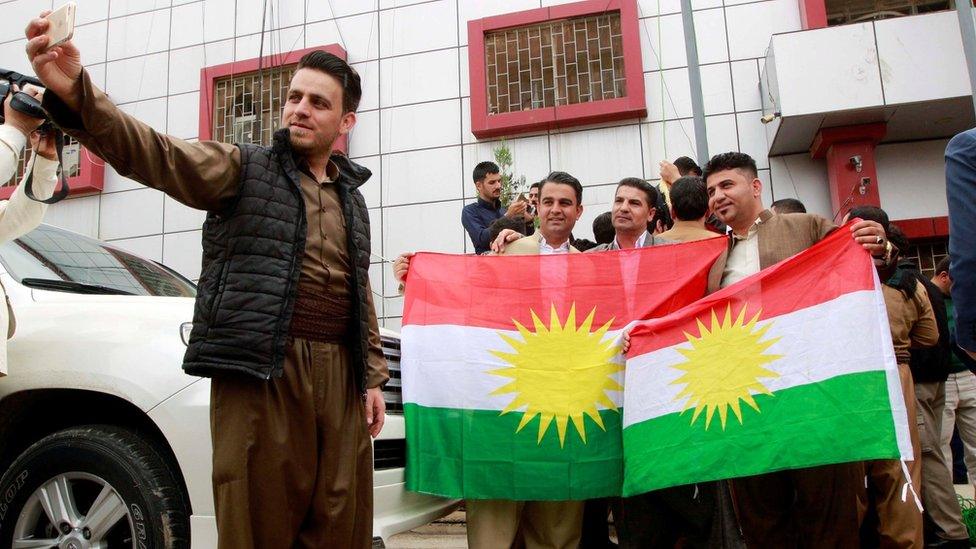
Kirkuk's Kurdish-led council recently rejected calls from Baghdad to lower Kurdish flags
Top government officials and political parties in Iraq's autonomous Kurdistan Region have agreed to hold a referendum on independence on 25 September.
The date was set at a meeting in Irbil chaired by President Massoud Barzani.
A statement said, external voting would take place in the three provinces that make up the region, and "areas of Kurdistan outside the region's administration".
There was no immediate comment from Iraq's central government, but it has urged Kurds not to hold a referendum.
Moves towards outright independence have historically been opposed by the governments of neighbouring Iran, Turkey and Syria, as well as by the US.

In April, senior Kurdish official Hoshyar Zebari told, external Reuters news agency that a "yes" vote would not necessarily mean independence would be declared.
Mr Zebari said it would merely help Kurds press their case for "the best deal" on self-determination once so-called Islamic State (IS) had been defeated in Iraq.
Kurdish Peshmerga fighters have played a major role in the US-backed campaign against the jihadist group, which seized large parts of northern Iraq in 2014.
But while driving IS militants out of the country, the Peshmerga have taken control of disputed territory claimed by both Kurds and the central government.
It includes the city of Kirkuk and the towns of Makhmour, Khanaqin and Sinjar - locations where President Barzani's senior assistant Hemin Hawrami declared, external voting would take place in September.
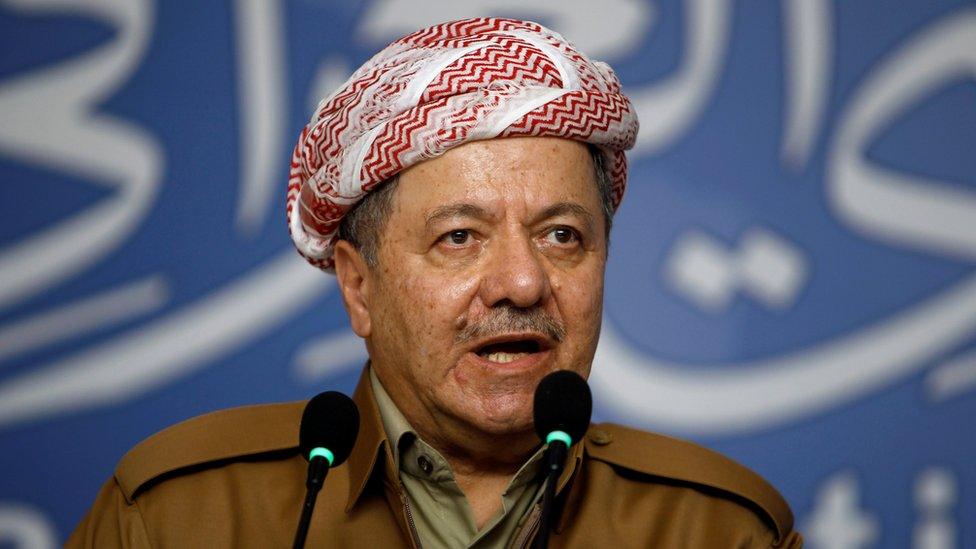
The date for the referendum was set at a meeting chaired by Massoud Barzani
Prime Minister Haider al-Abadi has said holding an independence referendum now would be neither in the Kurdistan Region's interest nor Iraq's.
"The desire of our Kurdish brothers to create a country of their own is their right... and nobody has the right to deter them," he was quoted, external as saying by the Kurdish Rudaw news agency in April.
"But holding a referendum at this time is not right as the war [against IS] still rages, the region's situation is not suitable, and some neighbouring countries believe this move poses a threat to the nation's security themselves."
The head of Iraq's ruling Shia coalition, which includes Mr Abadi's Dawa party, meanwhile warned against any "unilateral" moves in the disputed areas.
- Published16 May 2016
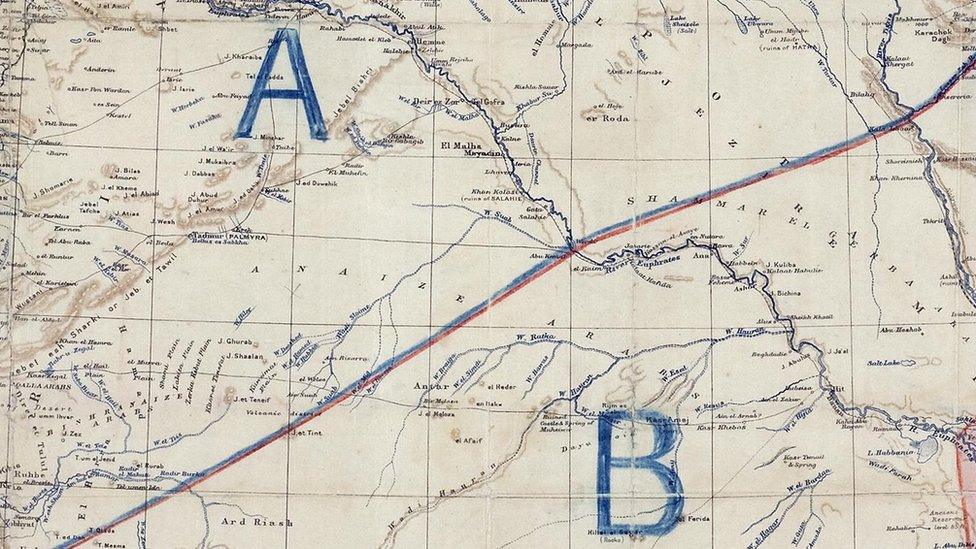
- Published1 July 2014
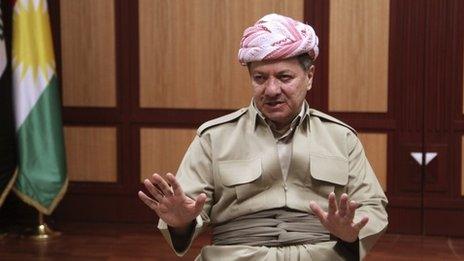
- Published13 June 2014
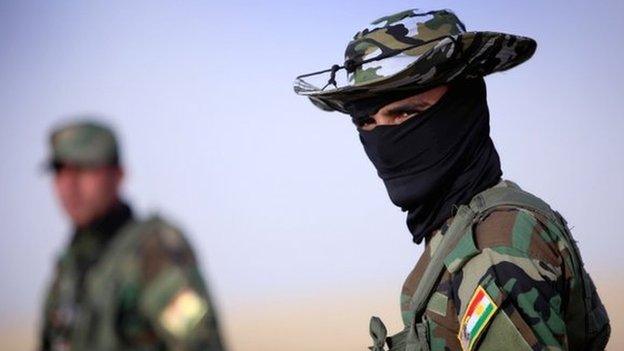
- Published15 October 2019
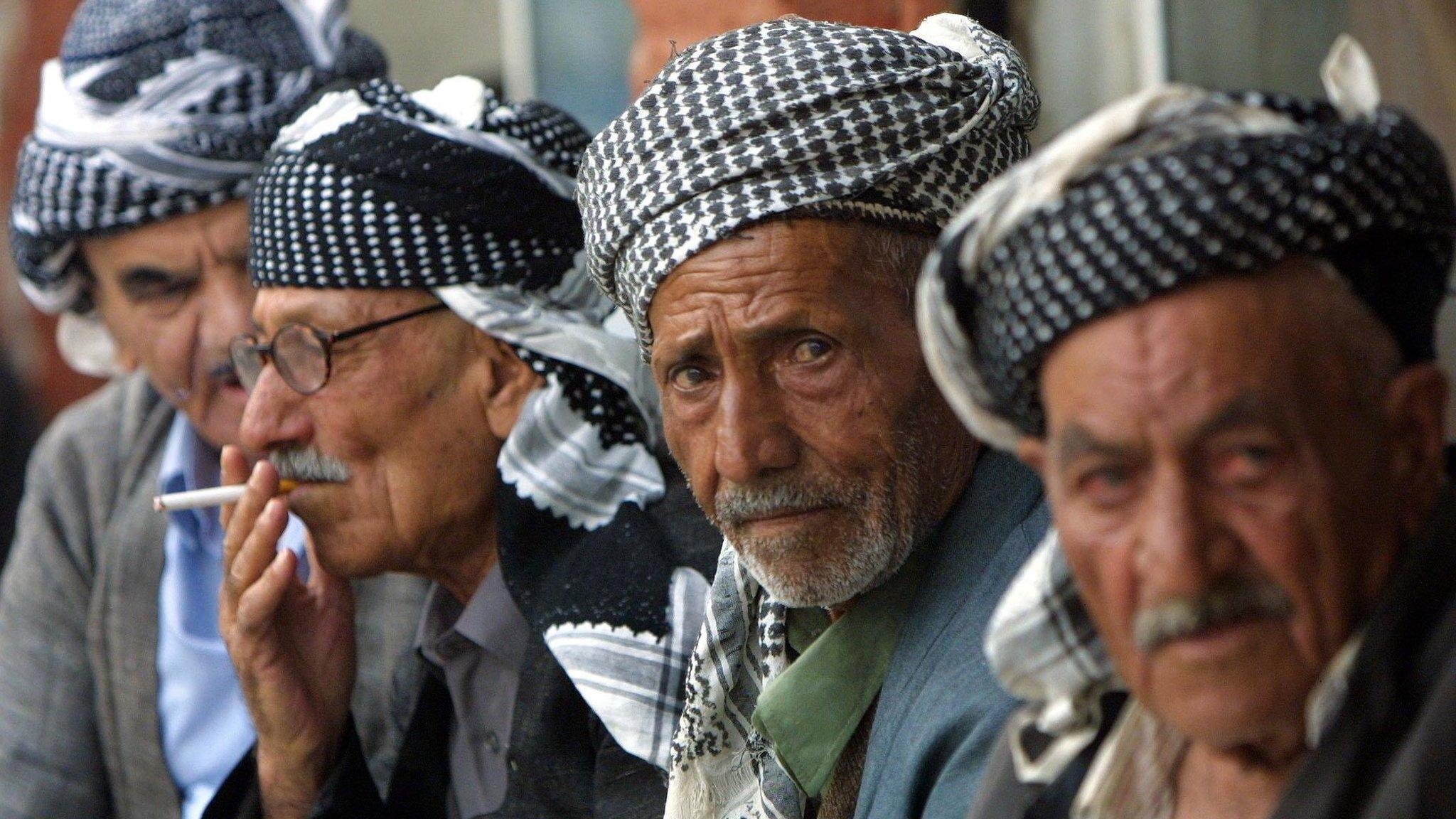
- Published31 October 2017